Growing up in the home of an abuser.
Excerpts from an interview with Demico Southern
on 1310 AM The Light (1 October 2015)
-
Describe your environment and life growing up as a boy in your home.
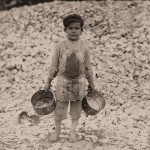 I tell people I grew up in a AAA household: my father was an abusive, adulterous, alcoholic. My father was a hard man. He made me work hard. I might describe periods of my life as “indentured servitude” considering the kind of work I was made to do. I was out cutting down 50 foot trees in the rain with him when I was 10. Pretty dangerous work for a little kid. But I did grow up with a strong work ethic.
I tell people I grew up in a AAA household: my father was an abusive, adulterous, alcoholic. My father was a hard man. He made me work hard. I might describe periods of my life as “indentured servitude” considering the kind of work I was made to do. I was out cutting down 50 foot trees in the rain with him when I was 10. Pretty dangerous work for a little kid. But I did grow up with a strong work ethic.
My mom was given $10 a week for groceries which meant good food was not often available. The money always always went for beer and cigarettes. Lack of resources affected medicinal care.
“Living in the air of abuse,” never knowing when the next emotional discharge would erupt, was tiring. Whenever I was home I never knew what emotional explosion would happen next.
-
Abuse takes many forms in the home, including physical and emotional abuse. As a child growing up in an abusive household, what did you experience?
 When my father was drunk, which was every night after 5 p.m., you walked an emotional tightrope. The anger and rage was awful.
When my father was drunk, which was every night after 5 p.m., you walked an emotional tightrope. The anger and rage was awful.
I remember the night my dad put a .45 caliber pistol to my mom’s head. My little sister would run to my room, during the episodic screaming at 2 and 3 a.m.
3. How did your father treat you in comparison to how your mother and sister were treated?
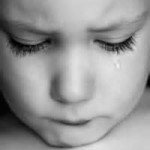 “Gender distinct” is how I would describe my father’s view. My dad had no respect for women, which obviously included my mom. My dad couldn’t wait for me to grow up. He wanted me to be “a man;” part of the reason he had me do much work I think. In that sense I had it better than my sister and mom.
“Gender distinct” is how I would describe my father’s view. My dad had no respect for women, which obviously included my mom. My dad couldn’t wait for me to grow up. He wanted me to be “a man;” part of the reason he had me do much work I think. In that sense I had it better than my sister and mom.
My mom taught 20 years on domestic and child abuse in New York state to students and professionals. It was eye-opening to those in the “business community.” People would question it or gasp in response. No one ever knew she lived the stories she told.
-
Times have changed when it relates to abuse in the present culture. There was little or no help for mothers and families in abusive situations. How do you connect what went on then to what goes on now?
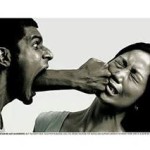 There are more ‘helps’ now. Vera House now exists in Syracuse, New York. Indy helps for abused women include the Julian Center and Coburn Place.
There are more ‘helps’ now. Vera House now exists in Syracuse, New York. Indy helps for abused women include the Julian Center and Coburn Place.
When I was growing up–when my mom was going through the throes of physical, emotional abuse–men wouldn’t want to hear it, women believed you either deserved it or liked it.
-
What would you like fathers, mothers, children, churches, pastors, and community leaders to take away from your comments this evening?
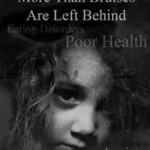 I still remember we were never invited to anyone’s house for dinner at my church because we were not a “whole family.” We were very involved in church ministry but we were not relationally included because my father was who he was.
I still remember we were never invited to anyone’s house for dinner at my church because we were not a “whole family.” We were very involved in church ministry but we were not relationally included because my father was who he was.
So I would say, listen, care, respect. Step in the middle of domestic abuse to protect women and children. Do not think “this is not my problem.” All violence, all abuse is our problem. If you don’t ask, check, and visit, the family might be tomorrow’s headline.
 The only person who stepped up at my church was my one time pastor, Milo Thompson. I’ll never forget he came to our house one night to visit my father. My father was changing the oil underneath our Dodge Dart. He did not stop what he was doing, nor did he greet Pastor Thompson. So Milo took off his sweater and shirt, and got under the car with my father. I will never forget that. Two years ago I was able to see Milo Thompson again to publicly thank him.
The only person who stepped up at my church was my one time pastor, Milo Thompson. I’ll never forget he came to our house one night to visit my father. My father was changing the oil underneath our Dodge Dart. He did not stop what he was doing, nor did he greet Pastor Thompson. So Milo took off his sweater and shirt, and got under the car with my father. I will never forget that. Two years ago I was able to see Milo Thompson again to publicly thank him.
“Why didn’t you leave?” is an awful question to ask. Where would we go? Where would anyone go if you have no support system? My father even threatened physical violence against my grandparents thinking we would go there to escape him. Whole families are impacted.
“You may think you are done with the past but the past is not done with you” is a truism. The Old Testament idea of consequences continuing through what is referenced as “the third and fourth generation” is true. People live through the lens of their time and place. Respect peoples’ backgrounds, listen to their histories. What you can see is different than the toll it took on a person.
By no means does that mean I am relieved of responsibility in my own life. By no means are my words meant as any kind of personal excuse.
 If the abuser is put in jail, understand that the family is left without help, financial stability, etc. Will The Church pick up the slack?
If the abuser is put in jail, understand that the family is left without help, financial stability, etc. Will The Church pick up the slack?
Most of all I would say 2 Corinthians 1.3-7 is true: “We comfort those with the comfort we have received from the God of all comfort.”
Dr. Mark Eckel is teaching an adult fall series on “suffering” at his church, Crossroads Community in Fishers, Indiana.

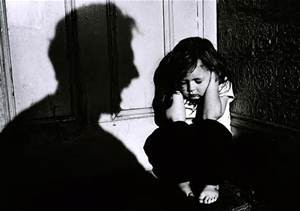
Thanks for opening up the wounds of the past to help us understand how we can come beside those who are in need.
Thank you for sharing. My experience was a little different. My mother left when I was 2, because the police threatened to take me and my sisters away if she stayed with him and did not press charges. She was terrified. I don’t remember the trial though I was told it was lengthy. He thought he was above the law. For years my mom slept with a knife because she was afraid he would come back after he was released from prison. Because she divorced him while he was in prison, she was responsible for all of his debt and had to be responsible for all of his debt…. I am so thankful that today my kids are able to live in a relatively happy home. I am thankful that we serve a God who is able to break the chains of generational curses and scars.